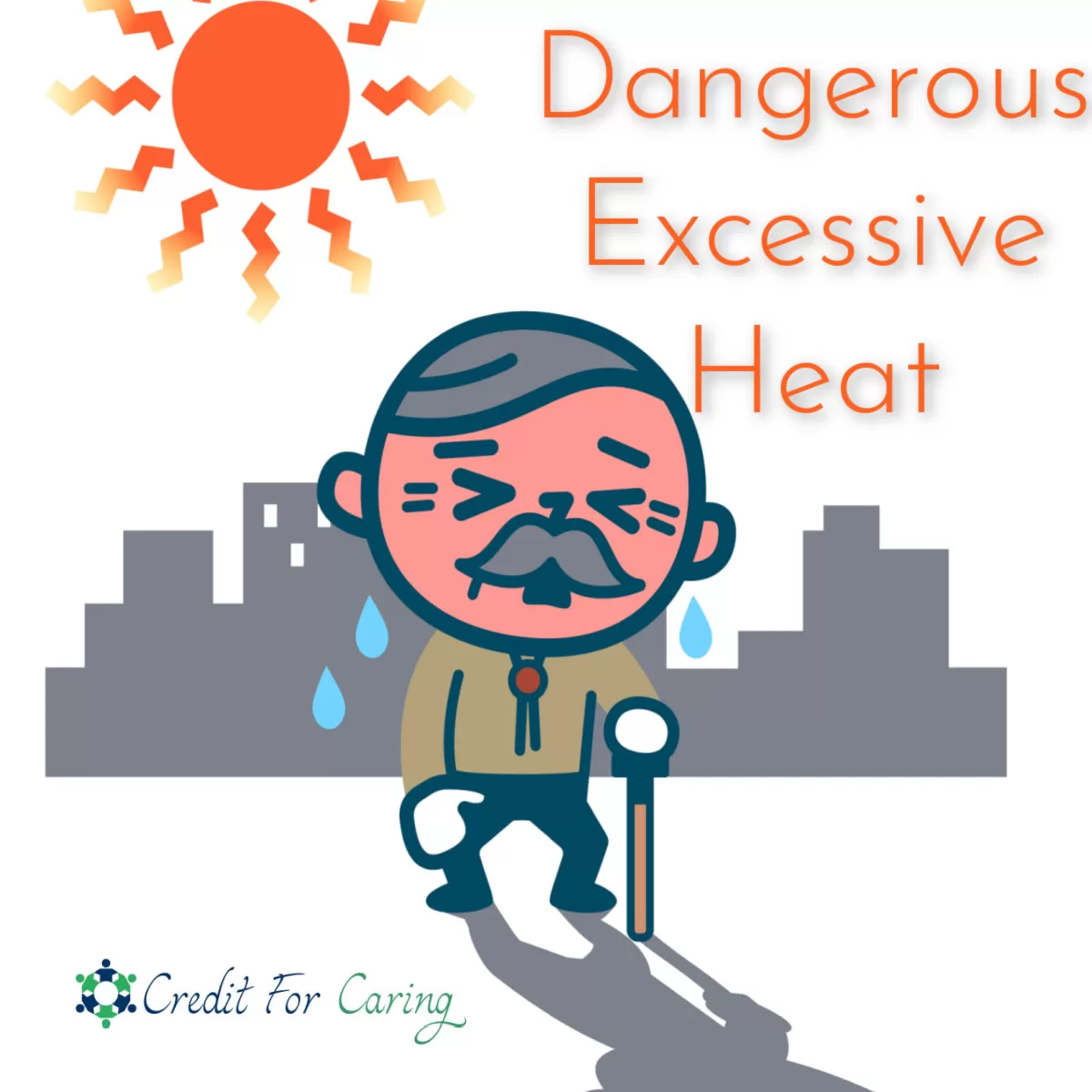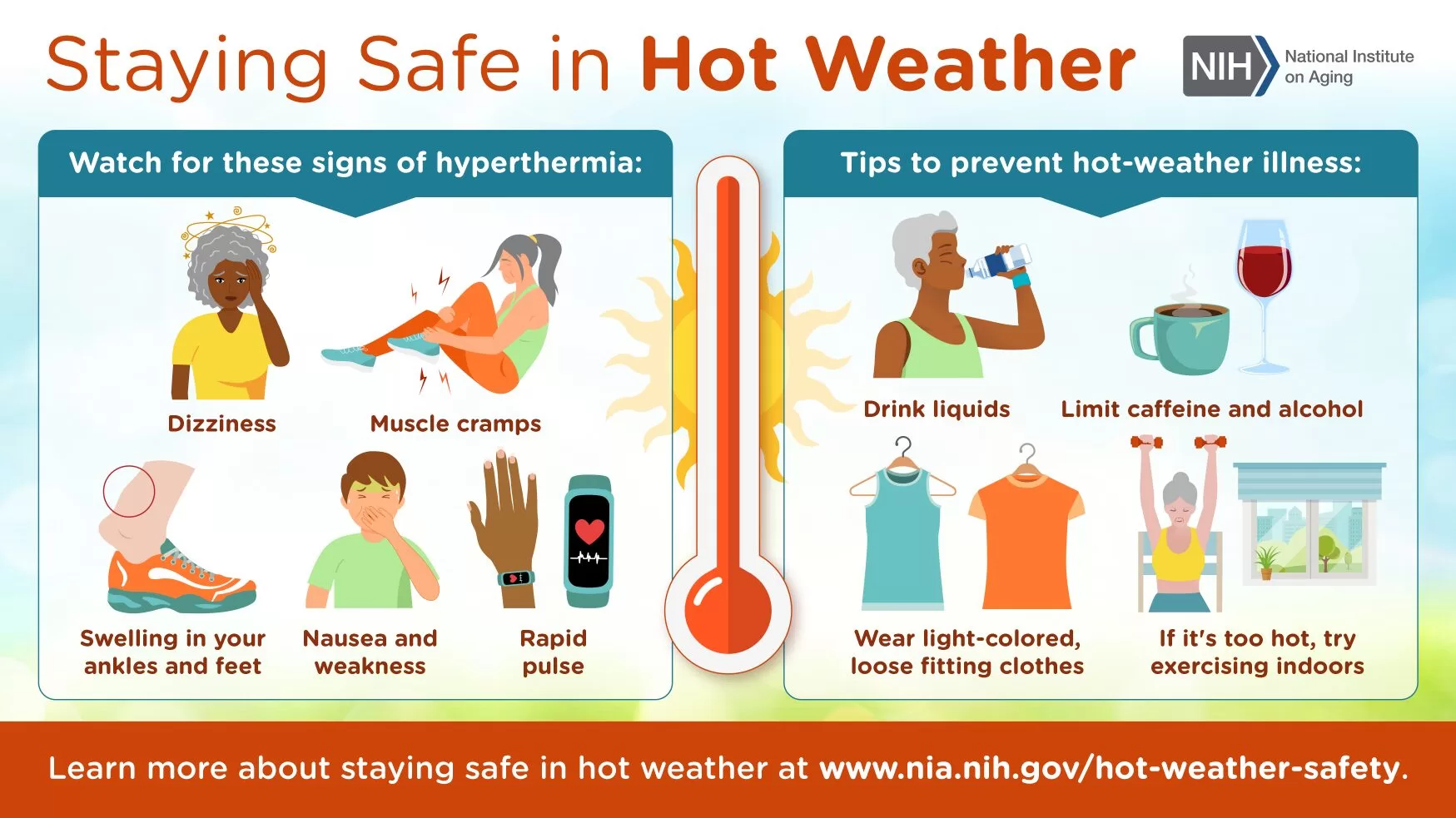
Weather Extremes Impact People with Chronic Health Conditions
Summer time temperatures can be brutal. Excessive heat, dry conditions, fire danger, violent storms, flooding, and other catastrophic weather events are unleashing their power right now. No one is immune however, people with chronic health conditions are especially vulnerable when the body and mind are put under this much stress.
Signs and Symptoms of Heat Related Illness
Heat exhaustion comes before heat strokes often referred to as heat cramps. The body is starting to overheat caused by water depletion or salt depletion. Both can have very serious effects leading to confusion, fainting and more serious condition
Heat stroke symptoms mimics many other minor health complaints but when they occur together can spell real trouble. Watch out for the following complaints including; headaches, nausea, mental confusion, and skin changes such as being hot, dry, or red. In addition, many people also experience alternating with chills and sweating, rapid breathing, and a temperature above 104 degrees Fahrenheit. Heat stroke can cause organ damage.
Remember, some high blood pressure medications can predispose a person to dehydration. In fact, this is particularly important for people with a reduced thirst sensation. Caregivers should keep an eye on the number of fluids ingested and eliminated especially in very hot conditions.
Never forget sunscreen and a hat and loose clothing to reduce the skin’s exposure to direct sunlight.

Actions to Mitigate Heat Exposure
Keep vulnerable people in air conditioning or in a well-ventilated room with a fan blowing is the best option whether air conditioning is present or not. Make sure the windows and doors are in good working order and allow for natural ventilation if an air conditioner is not installed. Remember, not to leave a people or pets in a hot car while running errands, the temperature rises quickly in the heat of the day, much faster than the line in the grocery store.
Please check up on people living alone more frequently. Rearrange the drawers and closet so that loose-fitting cotton clothes within easy reach. In fact, lightweight clothes provide natural ventilation and wick moisture away from the skin.
Stock drinks with electrolytes, such as Gatorade, that will replenish lost nourishment and keeps the body well hydrated. Be sure to include food items containing natural salt in the summertime diet also to replenish nutrients.
Lastly, ask your doctor about your medications specifically those with side effects to excessive heat. Be sure to have an honest discussion about how much outdoor activity is appropriate in the summertime.



